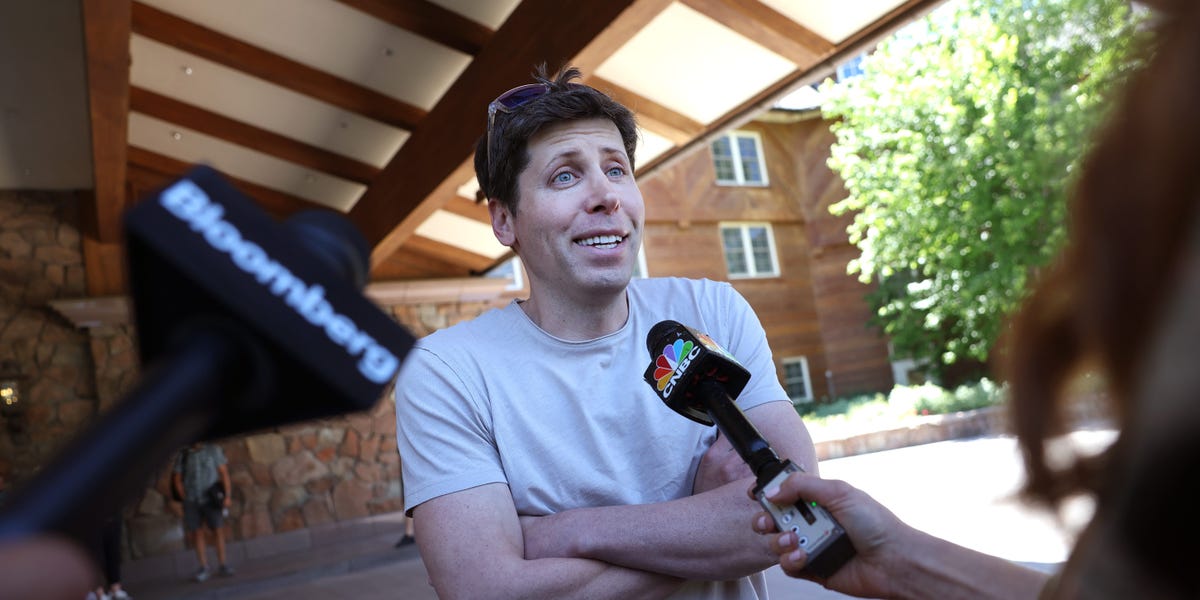- Doomsayers want us all to believe an AI coup could happen, but industry pioneers are pushing back.
- Many are shrugging off the supposed existential risks of AI, labeling them a distraction.
- They argue big tech companies are using the fears to protect their own interests.
You’ve heard a lot about AI wiping out humanity. From AI godfathers to leading CEOs, there’s been a seemingly neverending flood of warnings about how AI will be our enemy, not our friend.
Here’s the thing: not only is an AI coup unlikely, but the idea of one is conveniently being used to distract you from more pressing issues, according to numerous AI pioneers who have recently spoken out.
Two experts, including Meta’s chief AI scientist, have dismissed the concerns as distractions, pointing the finger at tech companies attempting to protect their own interests.
AI godfather Yann LeCun, Meta’s chief AI scientist, accused some of the most prominent founders in AI of “fear-mongering” and “massive corporate lobbying” to serve their own interests. He said much of the doomsday rhetoric was about keeping control of AI in the hands of a few.
“Altman, Hassabis, and Amodei are the ones doing massive corporate lobbying at the moment,” LeCun wrote. “They are the ones who are attempting to perform a regulatory capture of the AI industry.”
Google DeepMind’s Demis Hassabis told CNBC he disagreed with many of LeCun’s remarks, adding it was important to start the conversation about regulating superintelligence early.
Representatives for OpenAI’s Sam Altman and Anthropic’s Dario Amodei did not immediately respond to Insider’s request for comment.
Andrew Ng, an adjunct professor at Stanford University and cofounder of Google Brain, took a similar view over the weekend.
He told the Australian Financial Review that some companies were using the fears around AI to assert their own market dominance.
The outlet reported that he said some large tech companies didn’t want to compete with open-source alternatives and were hoping to squash competition with strict regulation triggered by AI extinction fears.
Several AI experts have long disputed some of the more far-fetched warnings.
It hasn’t helped that the statements issued by various centers — and backed by prominent AI leaders — have been notably vague, leaving many struggling to make sense of the dramatic claims.
One 23-word statement backed by the CEOs of OpenAI, DeepMind, and Anthropic drew a largely unexplained link between the rise of advanced AI and threats to human existence like nuclear war and pandemics.
The timing of the pushback, ahead of the UK’s AI safety summit and following Biden’s recent executive order on AI, is also significant.
More experts are warning that governments’ preoccupation with the existential risks of AI is taking priority over the more immediate threats.
Aidan Gomez, an author of a research paper that helped create the technology behind chatbots, told The Guardian that while the more existential threats posed by AI should be “studied and pursued,” they posed a “real threat to the public conversation.”
“I think in terms of existential risk and public policy, it isn’t a productive conversation to be had,” he said. “As far as public policy and where we should have the public-sector focus — or trying to mitigate the risk to the civilian population — I think it forms a distraction, away from risks that are much more tangible and immediate.”
Merve Hickok, the president of the Center for AI and Digital Policy, raised similar concerns about the UK AI safety summit’s emphasis on existential risk.
Hickok told Insider that while the event “was initially born out of a commitment to promote democratic values,” it now has a “narrow focus on safety and existential risk,” which risks sidelining other pressing concerns to civil society.
In a letter addressed to UK Prime Minister Rishi Sunak, the center encouraged the UK government to include more pressing topics “such as bias, equity, fairness, and accountability” in the meeting agenda.
The UK government said the event, which will be opened by technology secretary Michelle Donelan, would set out its “vision for safety and security to be at the heart of advances in AI, in order to enable the enormous opportunities it will bring.”
Read the full article here





